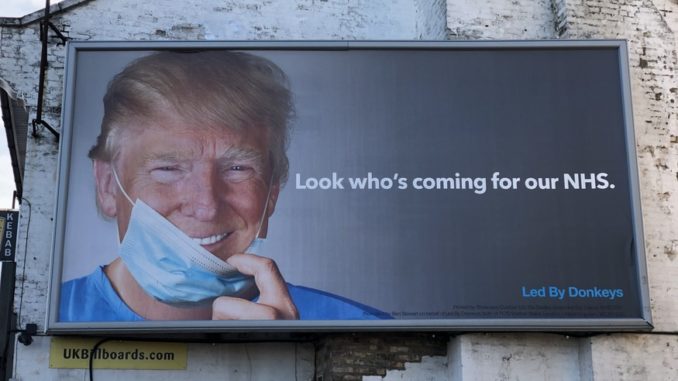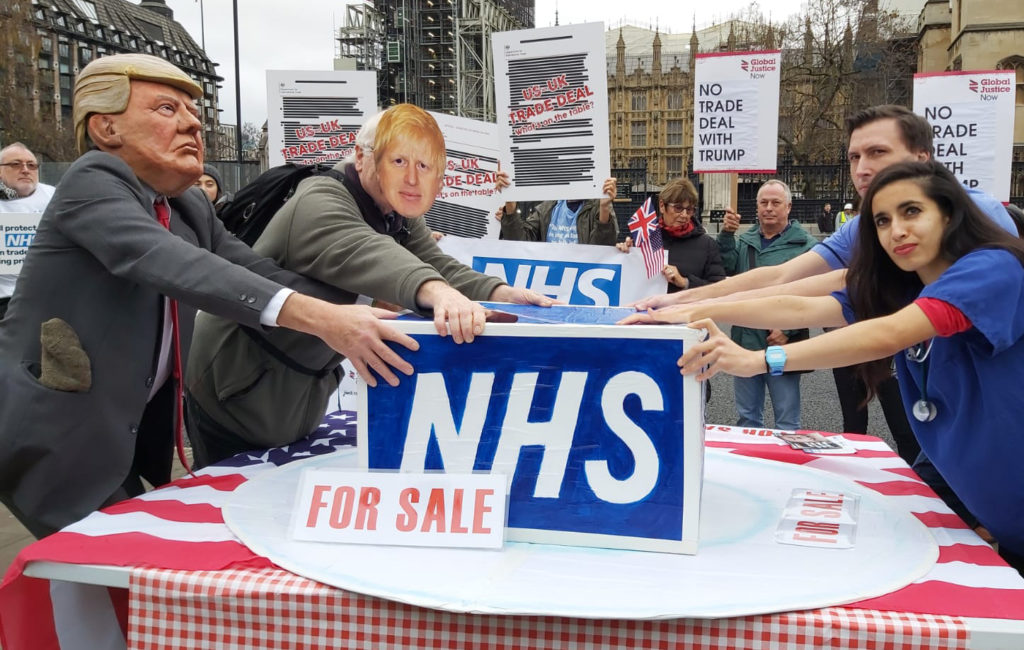
Allowing businesses to buy up parts of the NHS through international trade deals would fragment a national institution that we depend on and mark the end of the NHS as we know it, writes Dr Sarah Walpole
I’ve seen the damage that treating healthcare as a business, and the patient as a commodity, can do.
This reality first hit home for me when I was a junior doctor in cardiology. A patient had come in with chest pain and we were reviewing images of their heart in a clinical meeting. We were surprised to see that they’d had a heart valve replacement. When they’d previously attended hospital with chest pain they’d had only limited heart valve disease.
The patient’s consultant filled in the gaps - apparently, while on a short trip to the USA, the patient had experienced chest pain, attended hospital, and been advised by a cardiothoracic surgeon that their insurance company should pay for a heart valve replacement. We’ll never know for sure whether their heart valve disease had suddenly got much worse before or during their trip to America, but it would be a vanishingly rare scenario.
In private healthcare, a financial incentive exists alongside an information imbalance. The person who holds the information and makes decisions about what intervention is or is not needed also stands to gain financially if the intervention is provided. In the USA and many other countries, conflicts of interest exist between those who fund medical research, those who write guidance for health professionals, those who develop and sell medications and medical devices and those who provide healthcare services.
The COVID-19 pandemic has shown us the importance of collecting and bringing together information about the spread and treatment of diseases to guide effective policies and planning. During COVID-19, a private provider, Serco, was given the contract for disease monitoring, Test and Trace.
Test and Trace has fallen far short of what was needed - many positive COVID-19 cases have not been followed up. The government could have used the UK’s existing public health systems and experts to run a programme to monitor COVID-19, which would have ensured links to local public health knowledge, effective planning and public health capacity development.
It is important that NHS and public health data is stored safely and securely and used to improve health, not sold to private companies or used by businesses to make profits. If amendments to the Trade Bill are not passed to exclude the NHS and supporting institutions such as the National Institute for Clinical Excellence and Public Health England from future trade deals, our health data may be held by companies in other countries where rules on data protection are less stringent.
Failing to exclude UK health services from international trade deals may cause the prices of some medicines to skyrocket. Some drugs that patients rely on may become unavailable on the NHS. Certain medications would be out of reach, except for the very rich, so health inequalities would increase.

A critical problem with allowing the NHS to be part of international trade deals is that we would ‘lock in’ marketisation. International trade law promotes international trade by putting more power in the hands of businesses. Businesses can sue the government if they deem that the government is putting up ‘barriers’ to free trade. And if things go wrong or a service isn’t up to standard, it is difficult or impossible to end a contract with a private provider early.
Donald Trump has said that ‘Everything will be on the table’ when it comes to trade deals with the UK. Whilst he has later rowed back this comment, the reality is that unless there are specific provisions in Monday’s Trade Bill to exclude the NHS from future trade deals, the NHS and UK health institutions remain very much ‘on the table’. And we must take our lead from the British public, three-quarters of whom do not want the NHS included in any trade deals.
The NHS is unlike any other health system in the world. It was designed to meet health needs without discriminating and it still has these principles at its core. Like most UK health professionals, I chose my career because I wanted to help patients and improve health, and I feel fortunate to have trained as a doctor in a publicly provided health system where negotiating contracts and providers has not been part of my role.
On Monday, MPs have a chance to vote in amendments to the Trade Bill that would protect the NHS by excluding it from future trade deals. An amendment tabled by Labour would see the NHS excluded, and an amendment tabled by a Conservative backbencher would see scrutiny at each trade deal such that the NHS could be protected. I stand with fellow health professionals in urging MPs to stick with their election promises - and cast a vote for the NHS.
Dr Sarah Walpole is a Junior doctor and member of Keep Our NHS Public who has written an open letter to the UK government signed by 450 high ranking NHS health professionals and academics calling for the NHS to be excluded from all future trade deals.







Leave a Reply